
Această recenzie poate conține spoilere
#Justice for Manda!
Godzilla royalty-director Honda Ishiro and composer Ifukube Akira were behind the Kaiju and Sci-fi movieAtragon. Given that pedigree I expected it to be better. With all the allusions to the destroyer goddess Manda, I definitely expected to see her before the last 15 minutes of the film and for more than 5 minutes. Atragon instead focused on old naval officers and whether to resurrect an Imperialistic Japan.
The film opens with two photographers taking pictures of their bikini clad model at midnight near the bay because everyone knows the lighting is so good at that time of the day. When up from the water comes a steamy man. There's an investigation regarding the steam man that leads nowhere. The photographers spend a lot of time hunting down a beautiful woman they see on the street so that they can make her a model. Turns out the would be model is the daughter of a naval commander who disappeared during the war and she became the ward of a retired admiral. Next thing you know a man with special powers from the ancient submerged city of Mu shows up to kidnap the woman and the admiral to take them back to Mu and make them slaves. His plan is foiled by the nosy photographers. After some city destruction by the vapor creatures the admiral finally realizes he's going to have to reveal that her father is not dead and take her to him. Not the happiest of reunions after 20 years especially since dear old dad has created a super sub that can also fly and burrow through the earth and has a freeze ray all in order to resurrect Imperial Japan. Not sure if that means he wants to go back on a destructive rage against China, Korea, and the US, but the admiral and his daughter try to change his mind. Only when the Mu kidnap his daughter and threaten to overthrow the world does he decide to use his sub for good.
Given that this was a Honda film, Manda was a huge disappointment in both design and execution. She's just the third female Kaiju in this particular franchise and she didn't show up until late in the movie and was dispatched rather easily. The high tech sub and city miniatures were all beautifully created for the time and budget. Ifukube recycled Godzilla's music for this one, I kept expecting to see the big guy stomp onto the scene. Goodness knows it might have made this movie more interesting.
The story tended to wander around in circles for much of the movie until they showed up at the secret island with the sub's inventor. The last 15-20 minutes were the best part of the film. It was concerning that when they destroyed the hidden city of Mu, they destroyed everyone. The genocide was a bit concerning even for a Kaiju movie.
While I applaud the makers effort to try and craft a different kind of monster film and focus on more sci-fi aspects, I found it rather disappointing. Better to watch Destroy All Monsters, even though she only had a cameo in it, Manda had more to do than in this one. Only for those Kaiju fans who would like to see Manda's original film or have an interest in sunken cities where the people wear bright colorful wigs.
9/30/22
Considerați utilă această recenzie?
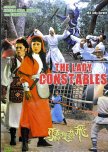
Această recenzie poate conține spoilere
Two for one coffins on sale!
The Lady Constables was an entertaining Taiwanese kung fu flick starring Angela Mao and Chia Ling. Deadly flying umbrellas, kung fu magnets, and a plethora of coffins, this movie had it all, but mostly it had two of the best female kung fu stars in the business featured.Angela starred as the Sheriff hunting down a gang of criminals who had stolen the Five Shining Pearls. Chia Ling was the niece of the chief escort killed during the theft and she was looking for payback. Wang Kuan Hsiung played the silent trusted bodyguard of the prince from whom the pearls were stolen. The running gag with him is that he wasn't a mute he just chose not to speak and had an endless supply of pre-transcribed notes to share his ideas and orders with. Other running gags included the ever present coffins for bodies to fly into. There was a problem with who had jurisdiction as the three combated and tried to outwit each other in the journey to recovering the pearls and bad guys.
The three rivals worked with and against each other as they hunted down each of the masters who had their own gangs in order to bring the thieves to justice and recover the pearls. That was easier said than done but an amusing rivalry road trip. A beggar and a coffin salesman follow them around ostensibly looking for a handout and more business.
Angela and Chia have had better fights but there was some challenging action as they beat down their enemies and had one quick fight with each other. Lots of wire-fu in this movie though some of it was funny, bordering on the absurd at times. The last couple fights were better and faster and both of the ladies acquitted themselves well, Wang was slower and far less interesting to watch. Thankfully, with his vow of silence the women took center stage, a rarity in this particular time. Oh, and there were a couple of guys dressed like knights in crappy armor, where the kung fu magnet comes into play. Never thought I'd write that.
The sets were re-used and recycled throughout the movie and like many old Taiwanese movies much of the fighting took place outdoors. The costumes were bright but fighting appropriate, no gold or silver lame` in sight. Standard kung fu fighting OST. The copy I watched and been cropped on the sides obscuring some of the action which is always disappointing.
The Lady Constables featuring a fierce Angela Mao and a confident Chia Ling was fun and didn't take itself too seriously as the fists, kicks, and coffins flew.
9/11/22
Considerați utilă această recenzie?
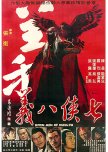
Seven Men of Kung Fu
2 oamenii au considerat această recenzie utilă
Această recenzie poate conține spoilere
Never underestimate a kung fu zombie!
Seven Men of Kung Fu had an impressive cast stuck in an unimpressive and bizarre story. Director and writer Cheung Hang only made 4 movies and that was probably 4 too many if this movie is any indication.Seven Men of Kung Fu was a confusing, horrendously edited movie. It's the old Mings rebelling against the Chings but with characters, plot, and motivations thrown into a blender. Characters appeared and disappeared, plot elements appeared and disappeared, and some people were at odds but their reasons were never explained. Just to make it more bonkers, Doris Lung and a kung fu zombie, presumably caught in a time loop because they came slowly over the same hill about ten times randomly during the movie with no explanation until the final scene. I cannot express how badly this story was written and filmed.
Old school Chang Yi was the Big Bad complete with a flame red wig and large white owl-like eyebrows. He was the Emperor's Supreme Constable and seemingly unstoppable, tasked with bringing in the murderers of some raping tax collectors. Chang Fu Chien starred as the Ming rebel leader. They never made it clear whether he was gathering men to fight the Chings or if they spontaneously began to gather. Often cast as baddies, Lo Lieh, Chen Sing and Phillip Ko sort of joined his ranks even though they didn't fight as a group. Characters were introduced and then never seen again or briefly during a brawl with the Prince's elite fighting corp. Random fight scenes came out of nowhere. We were shown a minion who could hang from the ceiling by his hair only to never see him again. Pretty sure one guy was killed twice.
While most of the good guys are shown suddenly fighting in town, Chen Sing is shown running and running and running. You know it was him because his shirt was open, he never missed a chance to take his shirt off in these old movies. Lo Lieh came riding into a town on a horse smaller than he was after the dust settled. All while they showed Doris and her zombie coming over that same hill-again. Have I mentioned this movie was bizarre?
The body count was high in this one. And I cannot express how weird the ending was. As of the writing of this review, I've watched over 150 kung fu movies and this had the strangest ending I've ever seen. Let's just say Doris and the zombie finally showed up and randomly figured in to it. I use the word random a lot because so much of this movie was random.
The fight scenes utilized trampolines, cartwheels, and wires quite a bit. Some of the fights bordered on kung fu posing, while others, especially the one with Chen Sing moved faster. An early fight with Lo Lieh combating a bunch of Ching policeman was amusing as he took them out and the chief officer ran a tally of his offenses and his "bill" as the fighting raged on.
This was a cheap Taiwanese movie, much of it being filmed outdoors. The film itself was badly degraded and faded. At least this version hadn't been cropped on the sides so much of the action was viewable.
Seven Men, a Couple of Women, and a Zombie is only for hard core kung fu fans as it was poorly made and at times incomprehensible. But for those few hard core fans the ending is worth watching because it was unique.
9/6/22
Considerați utilă această recenzie?
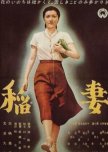
Această recenzie poate conține spoilere
"You're surrounded by bums." "But they are relatives"
Lightning is the slice of life of a dysfunctional family dealing with death, infidelity, and becoming independent. Director Naruse weaves together the lives of four grown children, the mother, and various in-laws and a pesky suitor with these troubling topics knowing exactly when to bring a bit of levity to their dilemmas.The quarreling family's mother had the four children by four different fathers and each child has a very different personality. Kiyoko is a 23-year-old bus tour guide still living at home and her family wants to marry her off to a seemingly wealthy by comparison 35-year-old baker. Her brother is a ne're do well who can't hold down a job and is usually out playing pachinko. Observing her older sisters' unhappy marriages Kiyoko is uninterested in their matchmaking efforts. Her sister Nui is tired of her unsuccessful husband and hooking up with the baker financially and personally. A death in the family causes problems when life insurance is involved and everyone wants a piece of it including a mistress! Everyone that is, except Kiyoko. As the situation escalates, the only child with a steady income and good head on her shoulders, moves out.
I really liked Kiyoko as she quietly watched the comings and goings of the rest of the family, privy to their secrets and foibles. Occasionally serious, but often with a knowing smile on her face as she stayed out of the fray as much as possible. When the time came, she didn't make a grand scene, she simply found another place to live and put into plan her goals. Eventually, Kiyoko and her mom had it out, and Kiyoko confronted her mother about her pain and having never felt happiness as they talked during a lightning storm.
Takamine Hideko was ethereal as Kiyoko. She moved seamlessly from problem to problem, completely believable as the youngest daughter who was unwilling to give up her dream of further schooling or settling for a boorish husband. Though beautiful and soft spoken she showed Kiyoko's backbone made of steel.
At one point Kiyoko tried to open her mom's eyes at the predicament the family had put her in. "You're surrounded by bums." To which her mom responded, "But they are relatives." Many a person knows this particular refrain when dealing with family. Most of us have had people in our families who are their own worst enemies and then can't figure out why bad things keep happening to them and think it's someone else's fault. Kiyoko's struggles mirror the struggles of many young people dealing with the push and pull of family as they discover who they are and where they want to be in the world. In these ideas, Naruse's work is timeless.
I loved the settings, the lively world of the suburbs of Tokyo came to life. Every scene was beautifully shot. The emotional piano music at the beginning and also played by one of the characters revealed the undercurrent of thunderous emotions. The film was exquisitely put together.
The film can be a challenge as Naruse drops us right into the middle of the story. The character introductions weren't always clear and it took me a while to sort everyone out. It is a true slice of life film as it begins and ends where the characters are and leaves resolutions up to the viewer. Many questions are left unresolved. We're not sure where Kiyoko's story goes though there are hints. Despite not tying things up with a pretty bow, I found this film charming and thoroughly enjoyed watching Kiyoko's journey to independence. Lightning was shockingly good, grounded in realism, and a bolt of pleasure. Sorry, I couldn't resist a few meteorological puns.
9/2/22
Considerați utilă această recenzie?
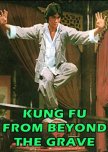
Kung Fu from Beyond the Grave
2 oamenii au considerat această recenzie utilă
Această recenzie poate conține spoilere
"It would be amazing if I lived!"
Hopping vampires! Ghosts! Count Dracula! Kung Fu from Beyond the Grave had it all. Except for decent special effects and a coherent story. It had me at hopping vampires, one of my favorite bonkers things in kung fu movies.Billy Chong's Chun Sing wasn't always the sharpest knife in the kung fu drawer, but he was diligent in pursuing revenge for his murdered father, once his dead father's ghost appeared to him during the ghost festival a year after his death. Revenge is revenge even when it comes late.
Lo Lieh played the evil Big Bad who had his chief priest Addy Sung, and his henchmen, murder the good citizens of the area and steal their hearts to perform an unholy blood spitting rite to make him immortal and impervious to weapons and kung fu.
Chun Sing had his hands full fighting the priest and his black magic kung fu. In one fight he hired some hopping vampires to aid him and Addy hired Count Dracula in return! Thank goodness for kung fu garlic! The story bounced around, often making little sense. Somehow torch wielding mobs knew just when to appear and prostitutes threw female accessories that could thwart evil.
Kung Fu from Beyond the Grave had rudimentary special effects, a step up from a high school play. Pretty sure they were able to film this for $12.99 (USD). Having said that, the movie was funny---in all the wrong places. I laughed at the absurdity of many scenes. The dialogue was hilarious, probably unintentionally in some places. When Count Dracula pops up-"hahahaha!" I thought I was going to lose it. It was good laugh therapy. The lighting often went from daytime to night to daytime to night again, sometimes in the same scene!
The fight scenes could be uneven. A couple of the beginning fight scenes were quite well done, aided by Chong's quickness, kicks and fluidity. I have enjoyed his fighting in the movies of his I've seen. Later fight scenes were poorly choreographed looking like they were made up as they went along. Lo Lieh, at 50, was starting to lose a step in the fights but still made for a believable villain, a role he seemed to be relegated to.
Kung Fu from Beyond the Grave was campy, comical, cheaply made, and only for hard core fans of old martial arts movies. But honestly, how could you pass up hopping vampires?
8/29/22
Considerați utilă această recenzie?

Warning from Space
2 oamenii au considerat această recenzie utilă
Această recenzie poate conține spoilere
Japan's first color sci-fi movie made full use of the technicolor palette. One-eyed blue starfish aliens show up on Earth causing the natives to wonder if their actions are friendly or nefarious.Warning from Space was both complex and quaint. You cannot take the science seriously---at all, but the story does bring forth a rather frightening threat which could end all life on Earth. Unlike the earlier Godzilla, who came to town stomping and shooting his atomic breath, in Warning from Space strange starfish aliens attempted to make contact but only caused panic. Determined to communicate with the Earthlings, the Parians were able to take human form to try and find a way to convince the local Tokyo scientists of a cosmic threat. A rogue planet, Planet R was headed straight for Earth and the only way to stop it was for all of Earth's nuclear weapons to be shot at it to either change its trajectory or blow it up. A simple enough idea but the World Council had to agree to it and they were unconvinced of aliens or a rogue planet. As the sky tinted red with temperatures and radiation rising, gigantic tidal waves and flooding appearing, the World Council agreed to using nuclear weapons to stop the impending doom. By now, everyone who could had gone underground as life on the surface was starting to cook. Would the nuclear weapons save Earth?
Warning from Space's sets and scenery were lush and vibrant. Great care was taken in creating this world. The aliens were simplistic, actors in blue starfish costumes, but this was 1956 and CGI didn't exist yet. They did remind me of Maggie Simpson in her starfish winter coat, or the Gorg from the cartoon movie Home (2015). Overall, the world building was quite effective. Miniatures were used for flooding and earthquake scenes, some better than others.
There were lessons about global and galactic cooperation, the use of nuclear weapons and the dangers of even more potent weapons. Though the movie is for 7+, scenes of animals dying on the surface could be disturbing.
Like I said, you can't take the science seriously, it was the 1950's with duck and cover nuclear bomb drills in real life. With that in mind, the ending and much of the middle didn't make sense. You have to put yourself in a simpler, less informed time.
The cast was rather large so most of the characters tended to come off as dry and ill-defined but the majority of the acting filled the bill. The story lagged at times, especially when the aliens inexplicably disappeared for a bit. Even with the detractions, the question of the Earth's fate as humans hid underground dealing with the fallout of the rogue planet hurtling ever closer did give it an edge.
Warning from Space had some intriguing concepts and beautiful cinematography for a 1956 film. Certainly not for everyone, but if you enjoy old sci-fi movies, Japan's first color sci-fi might be one to try out.
8/20/22
Considerați utilă această recenzie?

Deep Sea Monster Reigo
2 oamenii au considerat această recenzie utilă
Această recenzie poate conține spoilere
You sank my battleship...and this movie!
Just when you thought it was safe to go back into the water...never mind, there was nothing scary about this horrible Kaiju named Reigo. For some reason the makers of this movie decided to set it during WWII using the real world Battleship Yamato and its crew as the hero of the piece.In 1941 a young Japanese man, Takeshi, bids his schoolgirl girlfriend goodbye as he sets off on the Yamato. The Yamato was one of two warships with enormous guns, the pride of the Japanese navy. During a routine mission the ship fires on a strange object in the ocean killing a baby Reigo. Big mistake. Now mama or daddy, nobody got close enough to check, sought vengeance on the fleet of destroyers and subs accompanying the Yamato. The Yamato was at a great disadvantage because of the size and angle of the guns. They couldn't fire up close, close being closer than 25k/16mi. Everyone should have felt safe on the great warship with Commander Yamagami in charge. Kurobe Susumu who played the level headed commander had been in half a dozen Godzilla movies before this. Unfortunately, he gets promoted in mid-battle and sent back to Japan leaving a former professor in charge. Between the professor and Takeshi, the cutie pie student, they must come up with a way to alter the guns as Reigo destroys each member of the flotilla.
In order for Kaiju movies to be entertaining they have to give us two things: fun and a compelling monster. I can not overstate how truly terrible the CGI was in this movie. They would have been much better off with a guy in a rubber suit and using miniatures. Reigo, the bone fish, the ships, and the ocean were of the worst video game quality. It's hard to immerse yourself in the movie when you are constantly confronted with the terrible CGI. The interior shots of the ship weren't much better, they looked like they were shot in an office building. It didn't help that this giant warship appeared to have a crew of less than 20 men.
In real life, the Yamato never fired its massive guns until 1945 not long before it was sunk by the American navy. In a strange ending complete with a Kabuki narrator and styling, the Yamato's fate was briefly told right before the credits. It was a strange juxtaposition of monster tale and WWII reality which didn't work for me. Actually, nothing in this movie worked for me-not the human story, the monster, or even the Japanese speaking American they fished out of the ocean. For die hard Kaiju fans only and even then it might not be worth checking out.
8/16/22
Considerați utilă această recenzie?

Această recenzie poate conține spoilere
If you're going to be a successful thief, don't litter!
Michelle Yeoh and George Lam play a cat and mouse game of thief and insurance detective gallivanting across Hong Kong and Europe. Even Queen Elizabeth shows up!Michelle Yeoh portrayed a bored heiress always looking for the next thrill. She assembles a diverse team who succeed in robbing an armored truck of $32 million without anyone getting hurt. Kent Cheng is the shady cop assigned to hunt down the culprits and George Lam is the debonair insurance agent also trying to get the money back. And Ku Feng plays an integral role as a hapless part of the heist team.
The movie starts in England, moves to Hong Kong, then to Switzerland, and Paris. Aside from Yeoh and Lam, much of the appeal of this movie is watching the stars ski, hang glide and race through the beautiful locations.
This was one of Michelle Yeoh's earliest movies and the last one before she took a break. She was gorgeous, even with 1980's hair, but she wasn't given much to do aside from the daredevil hobbies. Lam was suave enough, but again not fully developed. The plot was reminiscent of a more tamed down The Thomas Crown Affair.
Easy Money had trouble maintaining suspense after the heist was pulled. Though Kent Cheng foamed at the mouth and used illegal means to try and trap the adrenaline junkie I was never worried because George and Michelle never seemed to be. Their chemistry didn't exactly sizzle, the kind of heat that would cause two cool customers to take the risks they did and the romance was never developed anymore than their characters. We don't know much more about them at the end of the movie than we did at the beginning.
This was a perfectly pleasant watch but could have been a more exhilarating ride if the writers had paid as much attention to the characters as they did the scenery.
Considerați utilă această recenzie?

Detection of Di Renjie
2 oamenii au considerat această recenzie utilă
Această recenzie poate conține spoilere
Detective Di must discover the reason behind 4 mysterious deaths. The deaths looked like a medieval Joker went on a rampage as all the victims were left smiling. Were the causes natural or supernatural? An imperial guard was also looking into the matter and she and Di reluctantly teamed up.The townspeople were convinced the deaths were a punitive action by Apsaras or murals coming to life to take vengeance. Di and Imperial Guard Xie Yaohuan immediately dismissed the flying fairies theory and started digging for more human motivations. Along the way there were twists and turns, many of them foreseeable.
Di and Xie went from if not enemies to lovers, at least enemies to allies. The slow burn was believable as the two worked together. Who the real villain was didn't take much detective work for the savvy viewer but at least they made the journey to the discovery interesting most of the time.
There were several swordfights in the rain which were good, not Jet Li-Donnie Yen in Hero good, but entertaining nonetheless. Most of the fights without torrents of water being dumped on the actors tended to be clumsy looking. It wouldn't have been a proper wuxia without someone being attacked in the woods by a black hooded assassin and Detection checked that box, too.
The acting, sets, and costumes were all more than adequate for a low budget Detective Dee. The story, while predictable at times could also be engaging. There was nothing spectacular, just a comfortable, familiar who-done-it. One word of caution if you have a snake phobia, Di and Xie were confronted by many, many snakes in one scene.
Detection of Di Renjie is not something to rush out and put in your Plan to Watch list, but if you enjoy ancient detective stories, this might be one to check out on a slow night if you keep your expectations low.
8/5/22
Considerați utilă această recenzie?
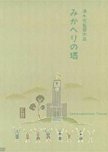
Introspection Tower
2 oamenii au considerat această recenzie utilă
Această recenzie poate conține spoilere
All can be done if you try, none can be done if you don't
Set in a reform boarding school, Introspection Tower is the home to troubled children or children of troubled parents. Unlike many stories with communal living, there is no abuse in the story. The school is progressive and the teachers lead by example in regards to turning unacceptable behavior into acceptable, well mannered behavior.The children live in communal housing with teachers in each house who are called "Mom" and "Dad". The children are encouraged to think of each other as brothers or sisters. Boys and girls are in charge of housekeeping and cooking taking turns with some of the chores. They also do ground maintenance and gardening. This is in addition to taking regular school classes and doing vocational work which benefits the school as customers order their handiwork. Parents are encouraged to visit and write often as the children are encouraged to write to the parents.
The stand out point in the film is when the problematic water well begins to run dry and water has to be diverted from a lake by digging a canal. Lacking the funds to have it done, the children and teachers work together to accomplish the colossal task.
Director Shimizu keeps the camera at a distance capturing the movement and energy of the children. There is no main character, though four children seem to be at the heart of most of the disturbances. Three teachers also feature into the stories. The stories were divided into vignettes as children behaved badly---stealing, lying, fighting, or attempting to run away and then confessing and apologizing. The teachers often felt as if they weren't making a significant difference in the children's lives. With the stories darting about erratically it could be hard to keep up with or care about the characters very deeply.
Despite the fact it was filmed during World War II, no mention is made of the global conflict. For me, it was hard to escape this particular shadowy specter in this place designed to enforce the idea of a hard working, well mannered communal society. Watching twelve-year-olds use pickaxes and shovels doing dangerous work was disconcerting as they dug the canal through treacherous terrain. While its purpose was to showcase how constructive work benefitted the group, these were children with no autonomy and no compensation essentially coerced into doing work for which they were not properly trained or equipped at the risk of their lives and health. This element felt more like propaganda than good storytelling.
Despite the quality camerawork and scenery, I found the narrative confusing and at times disturbing and the movie overlong. While I can appreciate the desire to have a more progressive look at the raising of children, especially in the stories of these complex children, the troubling parts of this movie weighed heavier than the lighthearted tones behind them for me.
7/29/22
Considerați utilă această recenzie?
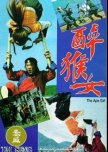
Această recenzie poate conține spoilere
Hell has no fury like a monkey scorned!
Ape Girl must have been a fever dream of writer Hou Cheng because it was several bananas short of a bunch. A combination slapstick, beauty makeover, cross-species (?) kung fu flick with little coherent writing made almost bearable by a simian performance from little known actress Chin Feng Ling. It was burdened by an abundance of over the top cringey humor and in the version I watched almost unintelligible dubbing for some of the characters.Some spoilers follow---
A kung fu master finds a girl in the jungle who had been raised by apes or is an ape, the story changes back and forth from scene to scene on what she actually is. Ape Girl is hairy and has a tail but otherwise looks like a human, a human trying out for the Broadway show "Cats". The apes in the first scene looked like Teletubbies on crack. The master takes her back home, teaches her to speak and write and refines her natural monkey kung fu. Like a curious kung fu monkey she gets into trouble wherever she goes and in one scene is helped out by the 4th Prince played by kung fu legend Chen Sing. She falls in love with him, follows him, and is brought on as his bodyguard. The Prince is charming and attentive, but it's Chen Sing so we know he will have a nefarious plan waiting to hatch. The Prince is attacked by an assassin, Lo Lieh, another kung fu legend, and the two fight it out. Chen Sing never met a shirt he didn't want to take off, but unlike the striking Bruce Lee, no one was every hoping he'd rip his shirt off in a fight. His nefarious plan is revealed when he tricks Ape Girl into retrieving the emperor's will so that he can change it so that he will inherit the crown.
When our little Ape Girl discovers the Prince thinks she's ugly in two shakes of a monkey's tail she rushes to the Master's friend to have the ultimate depilation treatment. The treatment takes place over three days which is interrupted by the Master, leaving her smooth and beautiful but with a tail still attached. The Master hadn't wanted her to transform because then like all other girls she would fall in love and have her heart broken. The Master trains her how to use her tail in kung fu, I kid you not, and confines her to his property.
Ultimately, she finds out about the Prince's betrayal. For some reason Lo Lieh has changed teams and is a bad guy now and the 8 Heroes show up out of nowhere and it's on like Monkey Kong with Chen taking his shirt off---again!
The fight choreography by Wang Tai Lang was engaging for the most part. Chin Feng Ling was quite athletic and nimble. She seemed to take delight in her monkeyisms and playful fighting. And when it was time to strangle people with her tail she was up for that, too. Lo Lieh and Chen Sing are two of my favorite old school stars and I was delighted to watch them fight each other. Ape Girl swung about with occasional wire-fu but most of the other fighters kept their feet on the ground.
The quality of this old Taiwanese movie has degraded. It didn't look like a big budget film to begin with. For the most part it was on par with a lot of these old martial arts movies made there. The soundtrack was funky 1970's music that could have come straight out of a US cop show.
I wish I could say this was more fun than a barrel of monkeys, but there was just too much monkeying around with the script leaving all logic scattered about like a three day bad banana binge. If the cringey humor hadn't gone on fur so long, I might have enjoyed it more. The fight scenes were fun and Chin was interesting to watch in them, the rest of the movie was painfully bad. If you run across this movie, before it makes a monkey out of you, find the nearest vine and swing far, far away.
7/21/22
Considerați utilă această recenzie?
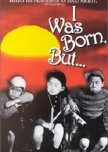
I Was Born, But...
2 oamenii au considerat această recenzie utilă
Această recenzie poate conține spoilere
Two young brothers have to adapt to their new surroundings and unexpected social stature in I Was Born, But…Bullied after they move to the suburbs the brothers start ditching school only to be found out. The father gives them the age old, and what every kid knows is useless, advice when he tells them to ignore the bullies and they will leave them alone.
The two find an unexpected ally who aids them and the brothers end up the de facto leaders of the little gang. The interactions between the boys and their school mates seemed natural and believable even after nearly 100 years.
Convinced of their place in the world they declare their father the most important out of the fathers of the boys. When they find out their dad is only an office worker and one who plays the office clown for the boss’ amusement they are devastated. Even worse, the boss’ son is part of their gang. They’ve gone from feeling like kings to peasants and they take it out on their father.
Being safe and cared for they couldn’t know the world was in dangerous economic times and their father’s job was vital to their survival. Aside from the economic depression, the viewer will know war was brewing as Japan would invade Manchuria and later move on to other countries. The headstrong, cocky boys came across as ungrateful for their father’s love and sacrifices.
The boys had to learn the lesson every adult is reminded of almost daily…the world isn’t fair. Competence isn’t always rewarded. Fortunately, if they didn’t eventually learn gratitude, they learned acceptance.
This film was similar in nature to director Ozu’s film Good Morning. I found Good Morning to be the more charming film. These children could be difficult to like at times.
I watched part of an unrestored version, it was glitchy and without music. Fortunately, I found a restored version though the music was heavy handed in it and didn’t always fit the mood.
I Was Born, But was a quiet slice of life film showing the growth of two little boys and the reality of the social hierarchy. How well you like the two boys scrambling for stature and unable to see their parents’ need for acceptance, may determine how much you enjoy this film. For me, though well made, slightly missed the mark.
Considerați utilă această recenzie?
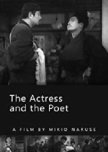
The Actress and the Poet
2 oamenii au considerat această recenzie utilă
Această recenzie poate conține spoilere
Director Naruse Mikio's first talkie was a comic take on a "modern" marriage. The financial roles were reversed in this 1935 film. Chieko was an actress and the breadwinner of the family while her spouse, Geppu, was a househusband who wore an apron and occasionally submitted poetry without much luck financially. The couple went along day in and day out as if all was normal. A nosy neighbor and the women in the neighborhood didn't understand it. While they liked Geppu, they didn't understand exactly what he did for a living. The men didn't understand why he did the laundry and cooking while his wife slept in late after rehearsals.
The nosy neighbor and her husband had a traditional marriage, yet it didn't insure happiness. She brow beat her husband into selling life insurance one night to their new neighbors. An act that would have consequences later on. The new neighbors were dressed in Western clothes and looked fabulously in love wanting only to be alone. Throw in a wannabe writer who owed everyone he could swindle and that was the main cast. Nose, the writer, was both catalyst and annoyance. I never did find his selfish antics amusing.
The turning point came when Chieko asked Geppu to run lines with her. The characters were a husband and wife fighting over the husband allowing a deadbeat friend to stay with him. As in real life the wife was the owner of the home and in charge financially. The two had never fought in real life and Chieko didn't know how to portray this part. Soon enough life imitated art and a real fight took place shaking up the status quo.
Spoilery comments below...
The acting was adequate, nothing very memorable. Overall, the film was well made. The story made nice arcs with the husband and wife. Geppu gently asserted himself and Chieko learned to treat her husband as more than an errand boy. The Nosy neighbors were brought in for contrast and comic relief. Nose was the irritating stone in their and my shoe. The real fight became physical which seemed out of place and unnecessary. The new neighbors' story took a dark turn which stood only to create conflict in the nosy neighbors' marriage.
For much of this film the couple's relationship seemed more modern than many recent marriages I've seen portrayed in Jdramas and movies. The wife was not berated by the husband and told repeatedly that her main job was to serve him and take care of the household. Their unique paradigm came across as fresh and I wonder how this was received early in the 20th century. The moments when he balked against their dynamic seemed natural when he felt underappreciated.
The ending felt like a step backwards in this progressive relationship, for a moment I had a flashback to the Stepford Wives movies, but I choose to believe Chieko stayed an independent woman, only one who paid more affectionate care of her husband instead of being shoved into a household role for which she wasn't made. And Geppu continued to be a loving househusband who learned it was okay to disagree with Chieko. Perhaps the marriage needed a shake-up to let each other know what was missing in their relationship. On a different day I might have rated this a 7, the ending, some dangling plot holes, and Nose's tiresome presence graded it down for me.
Considerați utilă această recenzie?
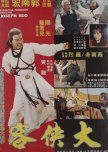
Această recenzie poate conține spoilere
If he goes to heaven, I'll him pull him down...
Dancing Kung Fu was an odd juxtaposition of a comedy and a drama both paralleling each other for a time by two groups chasing the main lead until everyone crashed together in the end.Doris Lung played Ping Erh, an 18-year-old girl, deemed ready for marriage by her grandfather. He took her to the market square and called out that anyone who could beat her in kung fu would win her hand in marriage. Over the next 20 minutes a very odd assortment of men took their shot, including a pair of guys who "do everything" together. Don't even want to ask. She made short work of her opponents until Szema Lung's Kan somehow ended up fighting her and won. He had no desire to wed her and made a hasty exit with his traveling buddy. Grandpa and Erh spent much of the rest of the movie chasing them down and ending up in grand fights with random others at an inn and then a brothel.
The more serious plot involved Kan and his unnamed traveling companion needing to deliver a secrety, secret list to the rebel forces. Ching agents were chasing them to obtain the list as well as Grandpa and the jilted fiancée wanting to obtain her a husband. As so often happens in kung fu movies, laughter turned to tears. Eventually, Kan met up with the rebels only to be betrayed and had to face off with Lo Lieh in his white wig. Every kung fu fan knows Lo Lieh in a white wig means big trouble. His henchmen wore leopard skin off the shoulder shirts, not sure if their outfits were supposed to invoke fear in their opponents or laughter on the audience's part.
The comedy wasn't too cringey. Grandpa and Erh seemed to be one step ahead of the secret list carrying men and ruffling their feathers along the way. Because there was also a serious tale embedded in the story, the comedy went down easier. Comedy that included a man beaten so badly by Erh that he peed himself in public and a romantic couple were interrupted by the fighting. How much you enjoy this movie will in large part depend on how much you like this kind of visual humor.
Most of the fights were well choreographed by Huang Fei Long. Some could be slow and there were a few shots that missed by a mile. Overall, the fights were entertaining. Lo Lieh's Sorrow and Joy technique was new to me. He was either laughing or sobbing to keep his opponents off-guard. The Yin-Yang attack was unique, if not a little cheerleady. If cheerleaders carried swords and used their pyramids to kill people.
Most of the acting was fine. Szema Lung didn't make very many movies, but he managed to carry off the fights well and look properly horrified at the thought of marriage. Doris Lung had a chance to shine and have some power of her own, completely unfazed by the men she fought. Yi Yuan as a comic good guy was nice, playing the aged grandpa with plenty of kung fu tricks in his magic staff. Nancy Yen joined in the fighting near the end. Lo Lieh in his wig and smirk gave the incongruent team a worthy foe, causing them to have to band together to survive.
Dancing Kung Fu, aka The Cavalier, aka The Smart Cavalier needs some loving restoration. It has faded badly and much of it had a blue hue to it. Though the version I watched was dubbed in English, they did leave in some Chinese songs and music which added a modicum of authenticity to it.
I enjoyed the unique take on a kung fu movie with the chasing Grandpa and kung fu girl. The fights were worth watching. But parts of Dancing with Kung Fu were incomprehensible either due to shoddy editing or writing. And as I mentioned, the humor could go over the top and vulgar. It had its fun moments, and, in the end, I didn't think I'd wasted my time. Not exactly exultant praise but there are some movies I wish I had the 90 minutes back, though this isn't one of them thanks to Erh and her grandpa.
Considerați utilă această recenzie?

Această recenzie poate conține spoilere
Your knowledge is thin like a piece of paper...
Avalanche does not involve snow and ice, but it does signify the disaster one arrogant man brings down upon himself.Goro is the spoiled child of a rich family, self-centered, entitled, and thinks he is much smarter than he is. He's been married for a year to sweet, obedient, traditional Fukiko and he is already bored. Goro is in love with Yayoi and wants to divorce Fukiko to marry her. His father puts his foot down and tells him he has responsibilities as a married man to his wife and society. Yayoi, the object of his affection, wants to be with Goro yet also feels guilty. Goro has no such compassion for his wife or feelings of guilt. Like a petulant child Goro wants what he wants now without caring how his actions will affect others. Father and son continually argue about duty and desire.
Avalanche can be a difficult film to watch, regardless of how you feel about infidelity. Goro is a selfish protagonist with no redeeming qualities. Even if you start to feel sorry for his situation, by the end of the film, he will have wiped it all away in a particularly dark moment.
I've been conflicted on how to rate this film. It is well made. The scenes flow easily into one another. Unlike some older movies where the action takes place within a couple of sets and the characters are static, Avalanche's scenes are fluid. The characters hold conversations while walking in a forest, in town or naturally in the home. Conversations involving the father tend to be smart and on point more often than not as the father realizes how vacuously empty his son is of any morals. It is obvious the director is contrasting the old and the new as well. The house is Western in design and furnishings. Fukiko dresses as a traditional Japanese married woman, whereas the men and Yayoi are in Western clothes at all times. Father and son eat in a Western style restaurant. Two generations and two different cultural attitudes clash at every moment.
The problem I have with the movie if I try to view it as a character study is that none of the characters grows or have much depth to them. Fukiko is devoid of personality and obedient unto death. Goro thinks only of himself. The trigger for a disastrous emotional release occurs when his father tries to reign him in with the threat of being disowned. As Goro's father tells him, he wouldn't go down this path if he didn't have the cushion of a wealthy family to land and rely on. Yayoi is caught up in Goro's avalanche, unable to extricate herself even though she is aware the price to be paid in society for their actions. Yet even she begins to believe Goro that to be happy one has to ignore the pain it causes others. Before the film ends, Goro steps beyond being merely disdainful and pitiless, to evil. At that point the film falters as it does not bring about a satisfactory or even comprehensible ending. With all the dialogue and inner thoughts this film encompassed, it lacked the few sentences which might have made the last actions understandable to the character and the audience.
The father compared Goro's thoughts to being as thin as paper. Too often the characters came across thinly drawn as well. In the end, it was hard to care about any of the main players. Whether motivated by love or desire, their actions or inactions brought down an avalanche upon them, leaving none of them unscathed or particularly sympathetic. In the end, Avalanche plummeted into a crevice with me, offering neither character development nor emotional release.
Considerați utilă această recenzie?

 54
54 193
193 11
11






















